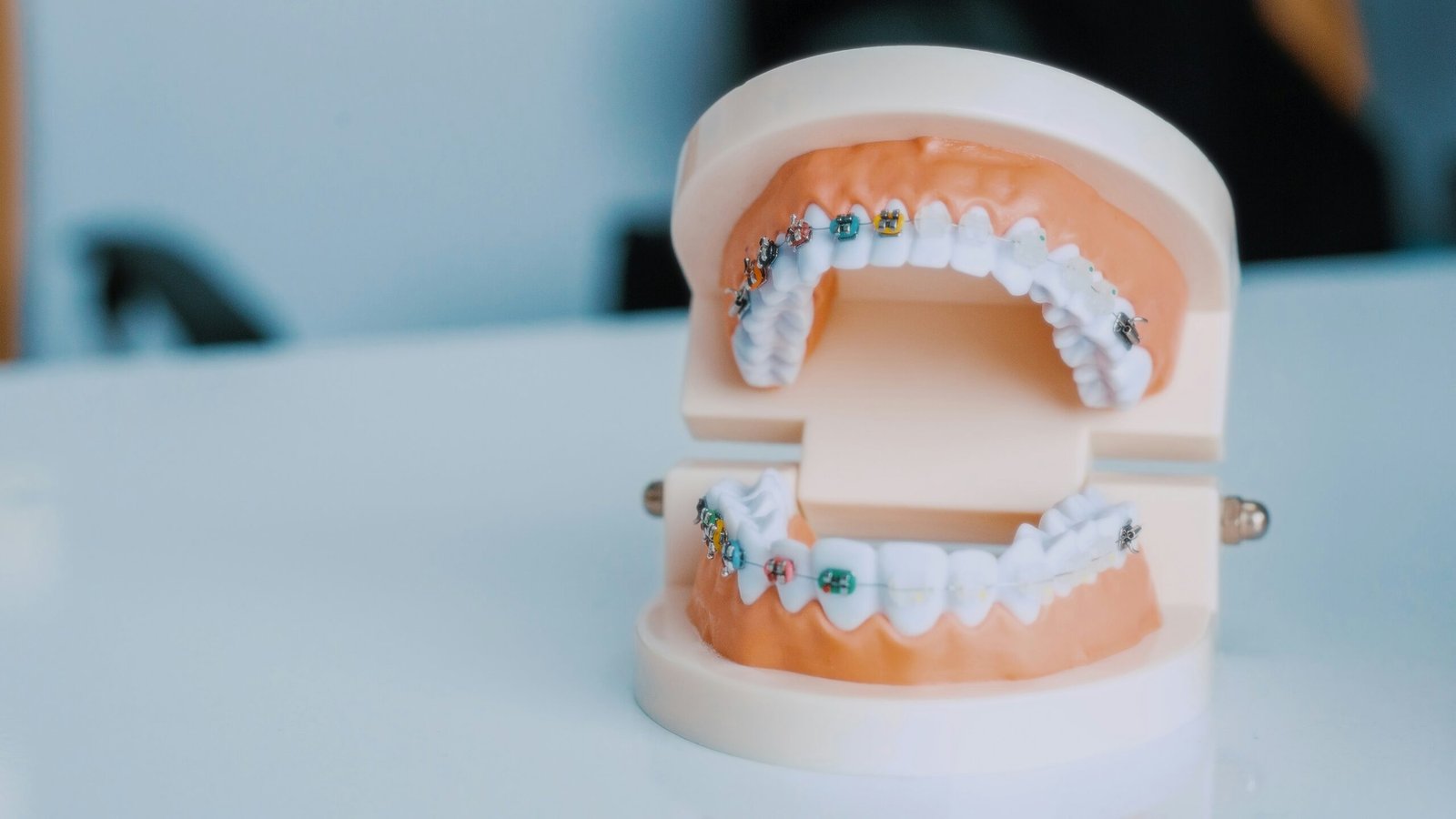Understanding Dental Implants
Dental implants are sophisticated dental devices designed to replace missing teeth, effectively restoring both aesthetic appeal and functionality to a patient’s smile. They consist of three primary components: a titanium post, an abutment, and a crown. The titanium post is surgically embedded into the jawbone, serving as a durable root structure that integrates with the bone over time through a process known as osseointegration. This integration is crucial as it provides stability and support for the artificial tooth.
The primary purpose of dental implants is to restore the ability to chew food comfortably and efficiently while maintaining the natural contour of the jaw and facial structure. Unlike traditional dentures or bridges, which may require adjacent teeth for support, implants stand independently, minimizing potential damage to surrounding teeth.
The procedure for receiving dental implants typically begins with a thorough examination and imaging studies to evaluate the jawbone’s condition. Following this assessment, the titanium post is surgically placed into the jawbone. This initial phase of the procedure usually requires several months for healing and osseointegration to occur. It is essential for the implant to bond securely with the bone to ensure long-term success.
After the healing phase, which can range anywhere from three to six months depending on individual circumstances, an abutment is attached to the post. Finally, a custom-made crown, often crafted from porcelain or other durable materials, is affixed to the abutment, giving the patient a fully functional and aesthetically pleasing tooth replacement.
Overall, dental implants represent a significant advancement in restorative dentistry, offering patients a reliable solution that can dramatically enhance their quality of life. Understanding the intricacies of the dental implant procedure lays the groundwork for appreciating their importance and the consequences of delaying the treatment.
The Importance of Timely Dental Implant Placement
Addressing tooth loss in a timely manner is crucial for maintaining both oral health and overall well-being. When a tooth is lost, the surrounding jawbone can begin to deteriorate due to a process known as bone resorption. This is because the stimulation provided by the tooth’s root during activities such as chewing is no longer present. As a result, over time, the jawbone can lose density and volume, leading to not only changes in facial aesthetics but also complications in the placement of dental implants.
Delaying dental implant surgery can exacerbate these issues, making the eventual placement of implants more complex and less successful. When dental implants are placed promptly after tooth loss, they can help preserve the jawbone by providing the necessary stimulation. This immediate action can prevent significant bone loss, minimizing the need for additional procedures, such as bone grafting, to prepare the site for implants later on.
Furthermore, timely placement of dental implants influences the overall success of the procedure. Studies indicate that implants placed within a specific timeframe after tooth loss tend to have higher success rates compared to those that are delayed for extended periods. The natural contours of the jaw and the health of the surrounding tissues are more favorable when implants are placed soon after loss, thus enhancing the chance of successful integration of the artificial tooth.
Ultimately, addressing tooth loss without delay not only upholds the integrity of the oral cavity but also fosters improved quality of life. Individuals with missing teeth may face challenges such as difficulty in eating, speaking, and maintaining confidence in social interactions. By opting for timely dental implant placement, patients can mitigate these concerns effectively while ensuring a healthier foundation for future dental care.
Effects on Jawbone Health Due to Delays
The health of the jawbone is significantly affected by the loss of teeth, as the underlying structure often begins to deteriorate without proper support. When a tooth is lost, the section of the jawbone that previously held the tooth root becomes at risk for resorption, a process that leads to bone density loss and alteration in bone shape. This gradual deterioration can compromise not only the jawbone’s structural integrity but also its ability to support surrounding teeth, leading to further complications.
Delayed dental implants exacerbate this issue, since the absence of tooth roots signals the body to redirect bone resources elsewhere, leading to continued resorption. Studies indicate that significant bone loss can occur within the first few months after tooth extraction; therefore, timely dental implants are crucial for preserving jawbone health. By placing an implant shortly after tooth loss, the necessary stimulation is provided to the jawbone, encouraging it to maintain its density and shape.
Furthermore, the relationship between jawbone health and overall well-being cannot be overstated. When the jawbone deteriorates, it can lead to complications such as changes in facial aesthetics, increased risk of further tooth loss, and jaw pain. Patients may also experience difficulties with chewing and speaking, which can lead to reduced quality of life. Additionally, weakened jawbone health often impacts oral health, potentially resulting in gum disease and other dental issues.
In essence, prioritizing timely dental implants has far-reaching consequences for both jawbone integrity and overall oral health. Addressing missing teeth promptly can help mitigate the effects of bone loss, thus preserving not only the jaw’s structure but also enhancing the patient’s quality of life.
Impact on Jaw Muscles and Functionality
Dental implants play a crucial role not only in restoring the aesthetics of a smile but also in maintaining the functionality of the jaw and surrounding muscles. When a tooth is lost, the jawbone begins to undergo changes due to the lack of stimulation that occurs with natural tooth roots. This can lead to a condition known as atrophy, where the bone density diminishes over time. Consequently, the muscles surrounding the jaw may also experience significant impacts, highlighting the importance of timely dental implant placement.
Delaying dental implants can result in an altered bite, affecting how upper and lower teeth align. This misalignment places undue stress on the jaw muscles, leading to discomfort and even dysfunction. The muscles may become overworked as they attempt to compensate for the missing teeth and altered chewing patterns, which can pave the way for various painful conditions, such as temporomandibular joint (TMJ) disorders. TMJ disorders can involve symptoms such as jaw pain, headaches, and difficulty in chewing or speaking, all of which are exacerbated by the absence of restorative dental options like implants.
Moreover, the relationship between jaw muscles and overall functionality is profound. Healthy jaw muscles contribute to a person’s ability to eat comfortably and effectively. When these muscles are put under strain due to missing teeth, the resulting changes can affect not just the individual’s oral health, but their overall quality of life. Difficulty in maintaining a proper diet due to chewing challenges can lead to nutritional deficiencies and additional health problems.
In essence, neglecting to address missing teeth with dental implants can lead to a cascade of muscle and functional challenges in the jaw. This reinforces the necessity of timely dental interventions to preserve both dental health and overall well-being.
The Psychological Effects of Tooth Loss
Tooth loss can have profound implications beyond the physical realm, significantly affecting an individual’s emotional and psychological well-being. When a person loses a tooth, the aesthetic changes can lead to diminished self-esteem. Many studies indicate that individuals with noticeable gaps in their smiles often feel self-conscious, leading them to avoid social interactions or public situations. This avoidance behavior, driven by fear of judgment or embarrassment, can create a cycle of isolation and decreased social engagement, ultimately impacting one’s overall quality of life.
Moreover, the anxiety stemming from tooth loss can be palpable, particularly if one is in a professional environment or maintaining social circles where appearance is deemed important. The psychological stress of thinking about how others perceive one’s smile can lead to chronic anxiety or heightened feelings of inadequacy. This is compounded when the delay in obtaining dental implants ensues, leaving individuals with a prolonged sense of discomfort, both physically and emotionally. The longer one waits, the more entrenched these feelings can become, exacerbating the initial impact of tooth loss.
Additionally, tooth loss can significantly affect mental well-being. Individuals may experience feelings of hopelessness or depression as they grapple with changes in their appearance and the associated stigma. The inability to engage in activities like eating out or smiling freely can also alter lifestyle choices, further isolating them from previously enjoyed experiences. In this context, seeking timely dental implants becomes not just a matter of oral health, but a crucial step toward reclaiming a sense of normalcy and confidence. Ultimately, addressing the teeth loss promptly through dental implants can mitigate these psychological repercussions, leading to a more fulfilling and socially engaged life.
Implications for Overall Health and Quality of Life
The decision to delay dental implants often reverberates beyond the realm of oral health, impacting general well-being and quality of life in various significant ways. Research has increasingly elucidated that oral health is intricately linked to systemic health. For instance, individuals with missing teeth or untreated dental issues may experience inflammation that can adversely affect cardiovascular health, correlating with an increased risk of heart disease. Furthermore, studies have indicated a potential relationship between periodontal disease and diabetes management, suggesting that poor oral health can exacerbate diabetic conditions, complicating overall health status.
Additionally, those who forgo dental implants may encounter challenges in daily living. Missing teeth can impair chewing ability, leading to dietary limitations. This not only affects nutritional intake but may also lead to food choices that are less beneficial for overall health, further exacerbating existing health issues. Inadequate nutrition can contribute to feelings of fatigue and diminished well-being, creating a negative feedback loop that affects both physical and mental health.
Moreover, the psychological implications of tooth loss should not be overlooked. Individuals may experience a decline in self-esteem and social engagement due to the aesthetic concerns surrounding missing teeth. This can lead to social isolation, anxiety, and depressive symptoms, which can significantly affect one’s overall quality of life. When dental implants are delayed, it may inadvertently result in a toll on emotional health, affecting interpersonal relationships and the ability to participate in social situations comfortably.
Therefore, addressing dental health issues promptly through solutions like dental implants is critical. Taking proactive measures not only safeguards oral health but also contributes positively to systemic health, emotional well-being, and an overall enhanced quality of life.
Preventive Measures and Solutions
The decision to delay dental implants can stem from various factors, such as fear, financial constraints, or a lack of awareness regarding the necessity of timely treatment. To mitigate these delays, patients should consider proactive approaches. First and foremost, educating oneself about the benefits of dental implants is crucial. Understanding how these procedures enhance oral health, improve functionality, and contribute to overall well-being can motivate timely action. Resources such as dental health websites, brochures, and professional consultations can provide valuable information.
Finding the right dental professionals is another essential step. Patients should seek qualified dentists or oral surgeons with a specialization in implantology. Checking credentials, reading reviews, and seeking recommendations from trusted sources can facilitate this process. A good dental professional will not only possess the necessary skills but also will prioritize patient comfort and safety, allowing for a smoother experience that reduces the likelihood of postponements.
Moreover, recognizing the signs that warrant immediate dental attention is vital. Symptoms such as persistent pain, swelling, or difficulty in chewing may indicate underlying issues that could complicate future implant procedures. Keeping a close watch on oral health allows for prompt action, which is critical in preventing further complications that could arise from delays.
Additionally, regular dental check-ups can help maintain oral health and provide opportunities to discuss any concerns related to potential dental implants. During these visits, dentists can assess the condition of the jawbone and surrounding tissues, ensuring that any detrimental changes are addressed promptly. Overall, taking these preventive measures not only facilitates timely dental implant procedures but also enhances long-term oral health.
Real-Life Case Studies: Consequences of Delays
The decision to delay dental implants can lead to significant consequences, as illustrated by various case studies that highlight the impact on individuals’ lives. One notable case is that of a 45-year-old woman named Sarah, who postponed her dental implant procedure for over two years due to financial concerns. During this period, she experienced bone loss in her jaw, as the absence of a tooth caused her jawbone to deteriorate. By the time Sarah sought treatment, not only was she facing a more complex and costly procedure, but she also developed a bite misalignment that resulted in persistent jaw pain and difficulties in chewing.
Another case is that of Michael, a 32-year-old man who opted to delay his dental implant surgery after losing a tooth in an accident. Initially, he managed with temporary solutions, hoping that the issue would resolve on its own. However, Michael soon began to experience shifting of adjacent teeth and gum problems. What started as an inconvenience escalated into a serious dental situation, ultimately requiring multiple surgical interventions and a longer recovery time than if he had opted for the implant sooner.
In yet another instance, a retired teacher named Linda waited to get her implants because she attributed her tooth loss to aging and expected that it would not significantly affect her quality of life. Over time, the gaps in her smile affected her confidence and willingness to engage socially. She found herself avoiding gatherings and public speaking events, ultimately leading to feelings of isolation. Once she finally pursued dental implants, the emotional toll had already been significant, underscoring that procrastination in dental care can extend beyond physical health to impact emotional well-being.
These real-life narratives serve as poignant reminders of the far-reaching effects of delaying dental treatments, emphasizing the necessity for timely intervention to prevent further complications.
Consulting with a Dental Professional
When considering dental implants, the initial consultation with a dental professional is a critical step in the treatment process. It’s essential to come prepared to discuss your oral health history, specific concerns, and the potential benefits of dental implants. During the appointment, expect the dentist to perform a thorough examination of your mouth, which may include taking X-rays or other imaging to assess the condition of your jawbone and surrounding tissues. This assessment is crucial in determining your suitability for implants.
As you approach this consultation, it may be beneficial to compile a list of questions to ensure you receive comprehensive information. Inquire about the success rates of dental implants, the materials used, and any pre-treatment procedures you might need, especially if your jawbone requires enhancement through grafting. Additionally, discussing potential risks and complications is important to create a realistic expectations for your recovery process.
Preparing for the treatment also involves understanding the costs involved and whether your insurance policy covers dental implants. Being informed about the financial aspects can help you make an educated decision regarding the procedure. Moreover, ask about the timeline for the entire process, from the initial consultation to the final placement of the crown, as this can vary significantly based on individual circumstances.
Another key factor is to discuss aftercare and maintenance following the procedure. Dental implants require regular check-ups and diligent oral hygiene practices to ensure long-term success. By actively engaging in this discussion, you can foster a collaborative relationship with your dental provider, ultimately leading to better outcomes and a smoother implant process.




